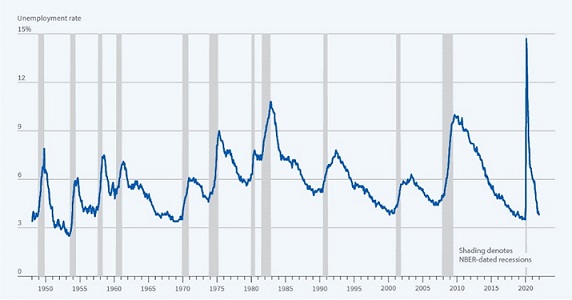
StonebridgeFOCUS | If It’s Not A Recession, What Is It?
I went to college in Florida where it rains on and off about every five minutes. It doesn’t matter what the weather app shows, rain is almost a certainty. It can be perfectly sunny as you’re walking out of the grocery store, but as you hit the exact mid-point between your car and the exit, a torrential downpour commences and only ceases once you’ve loaded up all your groceries and shut your car door. I can confidently say as a former (and brief) Floridian, the state has some of the most obnoxious weather.
What’s funny about weather is that we all interpret it differently. My wife is a Tampa native, and what I described earlier as a “torrential downpour” she might consider as just a “sprinkle.” She’s probably right (as she typically is), but it’s fair to ask ourselves when it comes to things like the weather, the economy, or how we define a recession, does it really matter what we call it?
In the second quarter, the US economy contracted -0.9% or experienced its second consecutive quarter of declining GDP (gross domestic product). For the last 50 years, this has been broadly defined as a recession. This definition was coined by the ninth US Commissioner of the Bureau of Labor Statistics, Julius Shiskin, in a 1974 article in The New York Times. It has been a popular definition, as it’s very easy to describe and restate through media channels. However, the true judges for determining whether a recession occurs is the National Bureau of Economic Research (NBER).
The eight-person committee of economists, which almost sounds like an economic order of Freemasonry, meets privately, and doesn't announce when they meet. We only know about their decision when a press release comes out. NBER describes a recession as “a significant decline in economic activity spread across the economy, lasting more than a few months, normally visible in real GDP, real income, employment, industrial production, and wholesale-retail sales.”1

The gist of that world salad is that the NBER likes to look at additional data points to determine whether a recession is taking place. That is not necessarily a bad thing. A doctor isn’t going to take your blood pressure and then immediately diagnose you with polio (at least I hope not). It’s fair to look at a couple other metrics before making a call.
If we do look back and consider this period a recession, then it will have some unique elements to it. This time around consumers and corporations have never been in a better financial position to handle a recession. US consumers saved just shy of $2.3T over the last two years with debt service less than 10% (debt payments as a % of income). There are two job openings for every unemployed person. But for every optimistic data point, you can certainly find a negative counterpart. To name a couple, how about forty-year high inflation eviscerating wages and historically low consumer confidence.
It seems evident that the reason why there is a strong push to define this economic climate is for political purposes. Whether or not we experience a recession can have political ramifications going into a mid-term election cycle. While it certainly matters to our elected officials, or those seeking election, a single mother driving around town trying to find formula probably has other things on her mind besides how we define this period.
Former President John F Kennedy once claimed that he only learned about the Great Depression from textbooks while he attended Harvard. My first reaction to learning that was, how could he not know? But little JFK was about 12 years old when the Great Depression began and was never directly affected by it due to his lavish, sheltered upbringing. Like any economic crisis, some will be hit more than others. It’s important to remember that not everyone has a poncho or an umbrella to protect against the storm.
Here in the US, we are very clearly dealing with some stubborn economic issues. Ask yourself, does it really matter what we call it?
No matter the financial and economic conditions, we are all truly grateful for your continued trust and confidence in Stonebridge.
Please see our recent contribution in Barron's for our insights on digital assets and cryptocurrencies.
1NBER

